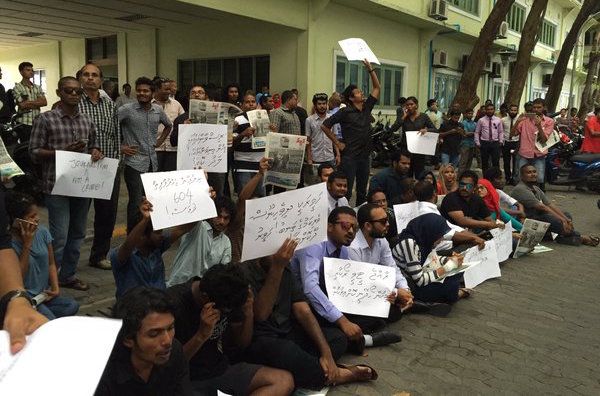Deputy minister labels detained journalists ‘criminals’ as HRCM investigates mistreatment in custody
While international human rights and press freedom organisations have condemned the mass arrests as symptomatic of declining press freedom in the Maldives, the Human Rights Commission of Maldives has launched an inquiry after all 18 journalists, including seven young women, were strip-searched twice in 20 minutes in what they say was a deliberate attempt by police officers to humiliate the detainees.

05 Apr 2016, 09:00
Deputy Home Minister Ahmed Siddeeq has labeled several journalists arrested from a sit-in protest Sunday “criminal offenders” while international organisations have condemned the mass arrests as symptomatic of declining press freedom in the Maldives.
Siddeeq posted a tweet this morning with a photo of the demonstration outside the president’s office. He circled out eight journalists and scrawled, “These are not journalists. They are criminal offenders.”
The journalists singled out by the deputy minister include The Maldives Independent editor Zaheena Rasheed, Sangu TV Managing Director Ibrahim ‘Asward’ Waheed, Raajje TV reporters Murshid Abdul Hakeem and Mohamed Wisham, and Haveeru senior journalists Fazeena Ahmed – winner of the inaugural “Journalist of the Year” award in 2014 – and Ali Nafiz.
Become a member
Get full access to our archive and personalise your experience.
Already a member?
Discussion
No comments yet. Be the first to share your thoughts!
No comments yet. Be the first to join the conversation!
Join the Conversation
Sign in to share your thoughts under an alias and take part in the discussion. Independent journalism thrives on open, respectful debate — your voice matters.




